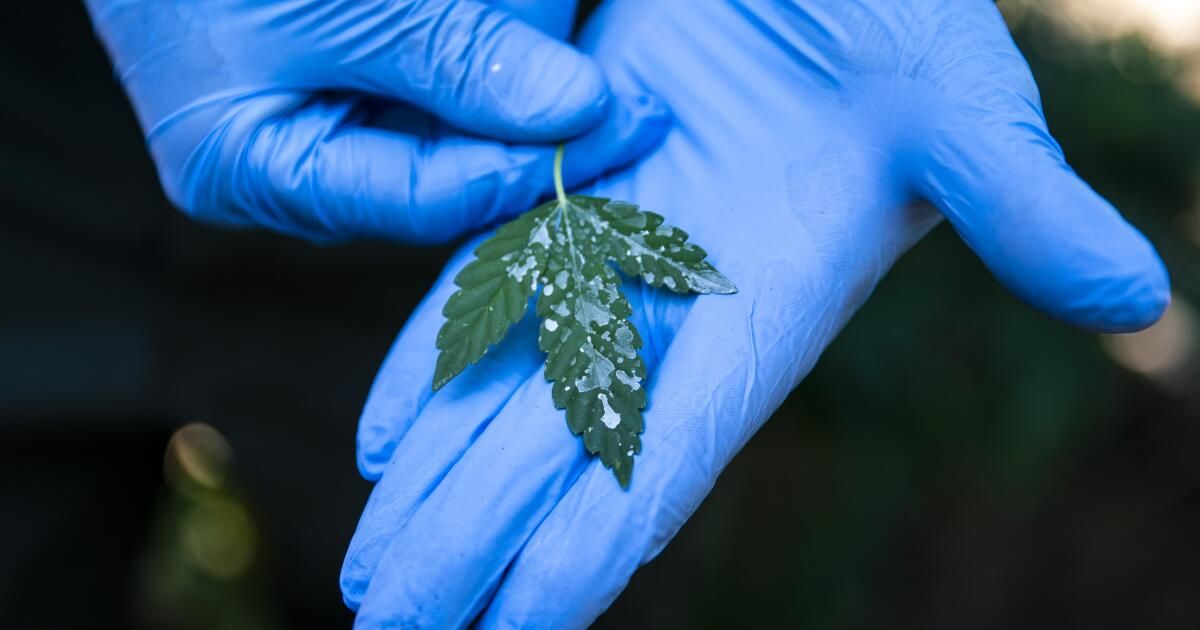In a state where the illegal marijuana market is still far larger than the legal one, the biggest draw for consumers is that more expensive legal cannabis products are tested, regulated and safe.
But a Recent research The Times and WeedWeek found that this is not necessarily true.
More than half of the legal cannabis products purchased at retail stores as part of the project and tested in private labs showed concentrations of pesticides that exceeded state-allowed levels or levels that exceeded federal standards for tobacco. (There are no federal standards for cannabis; it remains illegal under federal law.) Tests found chemicals linked to cancer, liver failure, thyroid disease, and genetic and neurological damage to users and their unborn children.
Some vapes tested had pesticide levels high enough that users could be harmed by a single exposure, potentially causing irritation to the lungs, eyes and throat, as well as rash, headache, diarrhea and abdominal pain.
This is not what Californians were promised when they voted to legalize recreational marijuana sales in 2016. The state's marijuana regulator, the Department of Cannabis Control, is failing consumers and the legal market by allowing tainted marijuana to be certified and sold as safe.
The Times investigation has sent shockwaves through the marijuana industry, in part because the revelations undermine public confidence in a legal market already in crisis. And the news has only fueled complaints that the Department of Cannabis Control has been too lax in overseeing testing of legal cannabis and too slow in responding when presented with evidence of contamination.
In addition to the health risks for users, the lack of strict enforcement creates an uneven playing field. Companies that follow the rules, require accurate testing and dispose of contaminated products are at a disadvantage compared to those that do not.
This has been a cause for concern among cannabis testing labs. The state’s regulatory system relies on private labs paid by cannabis producers to test and certify their products. Industry groups say bad actors fail to report tainted products and that the lack of strict oversight by the state has allowed them to get away with it.
A cannabis testing lab, frustrated by state inaction, began testing cannabis products for pesticides. The lab’s co-founder sent 77 complaints to the Department of Cannabis Control about tainted products between October and May, The Times reported. After receiving the complaints, it took 41 days for the department to issue the first product recall linked to pesticides. In a recall, products are pulled from shelves and notices are sent to consumers to warn people who may have purchased them.
Cannabis Control Director Nicole Elliott said in a statement to The Times editorial board that her agency, which was established in 2021, has been expanding its testing, oversight and enforcement.
The Department Product recalls intensified for contamination and other reasons, with 28 recalls issued so far this year, compared with eight recalls in 2022 and 2023. However, some recalls came months after labs reported contamination complaints to the state and after the products were sold to customers.
And over the past year, the department has fined, suspended and/or revoked 13 laboratory licenses and launched numerous laboratory investigations that could soon result in additional enforcement actions.
That’s an improvement, but California needs to step up its efforts. Yes, the state should do more to shut down illegal marijuana operations that don’t try to comply with the law, but Californians expect more when they buy legal marijuana. The Department of Cannabis Control should be more aggressive about randomly testing products on store shelves and penalizing growers and manufacturers responsible for tainted products. Labs should also be inspected and audited more frequently. That may mean the agency needs more funding and direction from the Legislature and Gov. Gavin Newsom.
Consumers should be able to trust that legal marijuana products are actually tested and safe.












